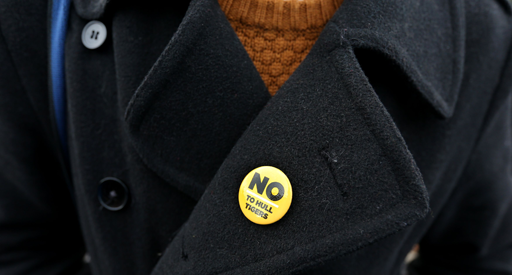3.4 Stakeholders’ passion and business
The passion aroused by football can shape the behaviour of many involved. It’s probably fair to say that decisions made about football often don’t stack up in purely business terms and this is because football inspires such strong emotions unlike most other businesses. This should be taken into account when you consider stakeholder interests – this additional drive may well sustain some stakeholders, who on paper appear to have little power and influence, to be creative about how they gain support for their views.

Activity _unit1.4.2 Activity 5 Mapping football stakeholders’ power and interest
Consider the articles on Hull in Section 3.2 again then answer the following questions:
- What power and interest category do you think the football fans fall into – A, B, C or D?
- What do you think football fans are doing to try to increase their power?
- What category do the FA fall into – A, B, C, or D?
- What other stakeholder groups are likely to have an interest in this decision? These can be identified from within the article or wider.
Answer
- Football fans have a high level of interest in the outcome but low power so would fall into category B.
- In order to increase their power the football fans are calling on the FA to block the name change. This has succeeded once although that decision was subsequently overturned.
- The FA in theory have high levels of power as they can block the name change (although this would seem to have be successfully challenged). Their level of interest is more debatable as arguably they would not have a high level of interest in the name change of a football club. However, all organisations, including the FA are run by people and it may be that more traditional views about the naming of clubs are more likely to hold sway within the FA. They are also undoubtedly taking into account the views of fans when they make their decisions.
- The football players, the manager, local businesses, the Premier League, the English Football League are a few of the other stakeholders. You may well have found many more.
In the next section you will apply the ideas covered so far to the challenge of developing women’s professional football which, from a business perspective, is relatively new.
